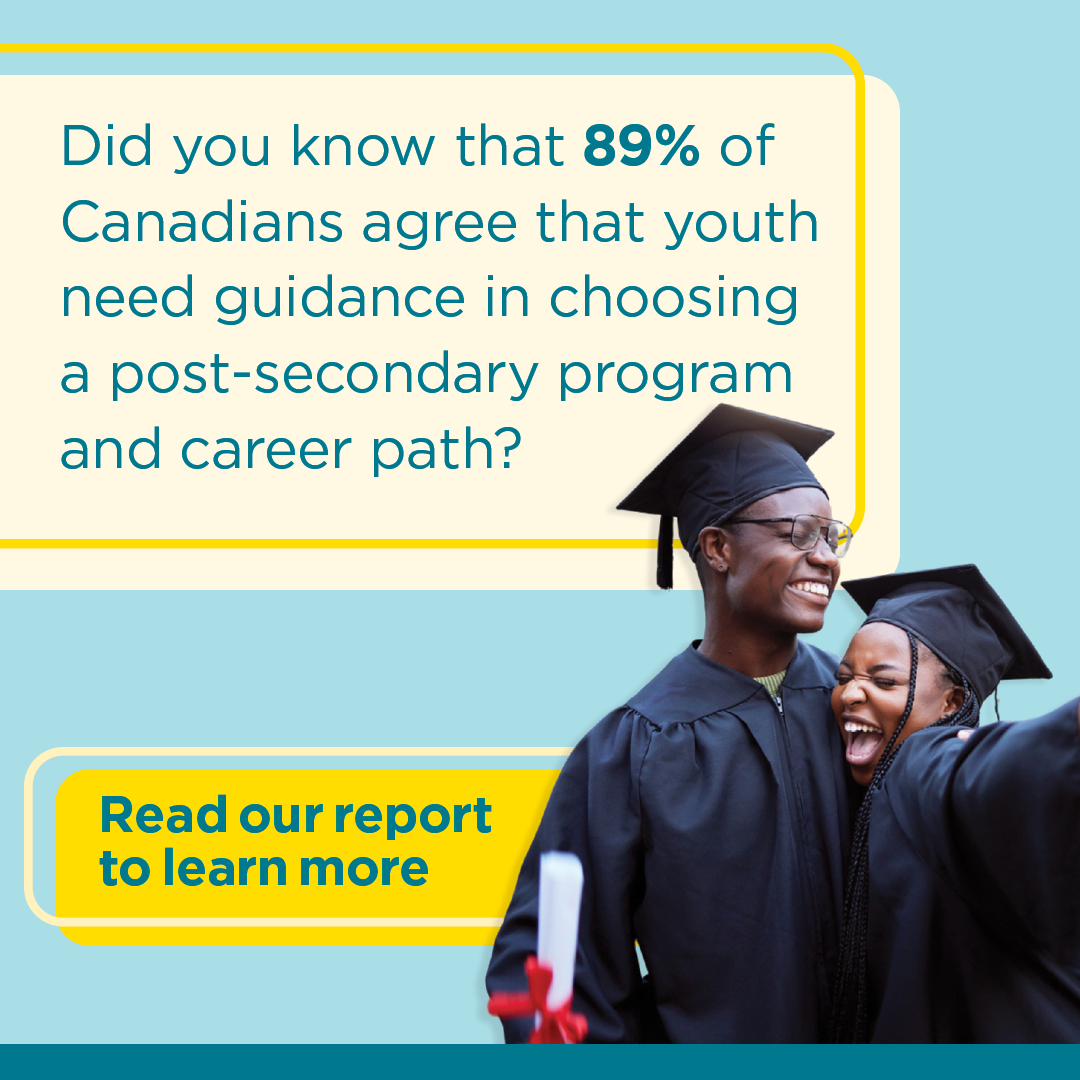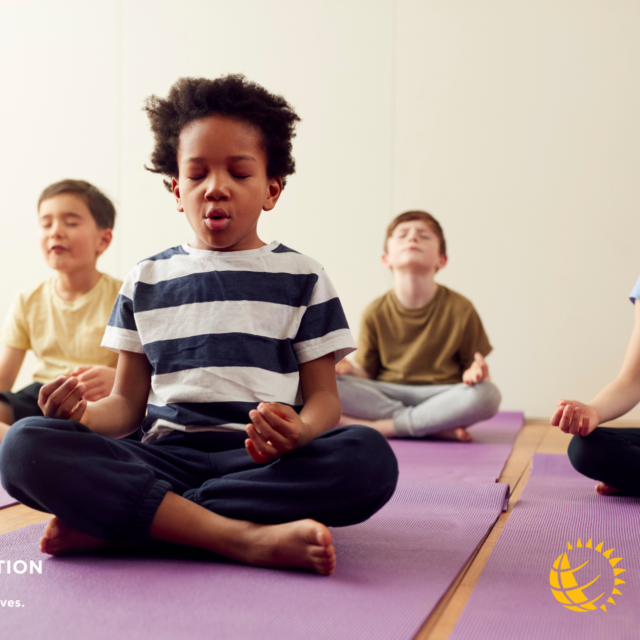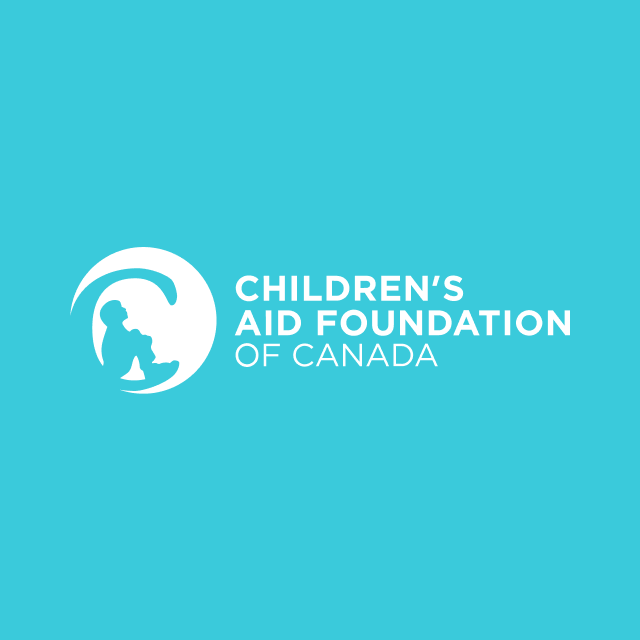Providing additional wraparound education support services for youth leaving care increases the likelihood of a successful transition to adulthood
(Toronto, ON, Sept. 10, 2024) – As young people across Canada return to college and university campuses this week, many youth in care will be excluded from the opportunity to pursue their studies. According to an Ipsos poll conducted on behalf of Children’s Aid Foundation of Canada for their newly published Focus on Education report, 93% of Canadians believe that youth involved with the child welfare system should have equal access to educational opportunities. However, only 69% think these young people have the same opportunities.
Youth from government care pursue post-secondary education at roughly half the rate of their peers, mainly due to the profound and complex barriers they face as they struggle with the impacts of abuse, neglect, abandonment, instability and childhood trauma. However, the most significant barrier they face is often financial – and 86% of Canadians believe that youth in government care face unique financial constraints in accessing post-secondary education.
“Without family support, young people from care struggle to navigate post-secondary pathways, and many believe that higher education is out of reach because they cannot afford it,” said Valerie McMurtry, President and CEO of Children’s Aid Foundation of Canada. “For nearly three decades, the Foundation has invested in alleviating some of this financial burden, but we recognize we cannot do it alone, and more must be done.”
Canadians agree that long-term solutions are key, with 81% expressing support for waiving tuition fees for young people from government care – a policy which receives strong support among all demographic groups surveyed.
Other notable findings from the poll:
- 86% agree that post-secondary education can break the cycle of poverty for youth who have experienced the child welfare system;
- 91% agree that receiving a post-secondary education is beneficial for the future prospects of youth in Canada.
- 90% agree that post-secondary education for youth from government care is beneficial to Canada’s future economic prosperity.
- Canadians also believe it is important for the government to provide a variety of support services for youth transitioning of care and into post-secondary education, including:
- Mental health support (92%)
- Access to affordable housing (90%)
- Guidance in choosing a post-secondary program and career path (89%)
“This poll signals that education remains a strong Canadian value,” said McMurty. “Equitable access to post-secondary education for young people from care is not just a matter of individual empowerment; it’s an economic imperative, and it’s time government, post-secondary institutions and philanthropy roll up their sleeves to work with young people to make it happen.”
Additional Quotes:
Dr. Jacqueline Gahagan, Associate Vice-President of Research, Mount Saint Vincent University in Halifax, Nova Scotia.
“While education is widely considered a key determinant of health and a human right, we continue to see those with experience in the child welfare system in Canada experiencing a disproportionate burden of low educational attainment. With this burden comes lifelong disadvantages in terms of health, social, and economic outcomes. To break this cycle, Canada needs to increase investment in the educational outcomes of all youth, including those with experience in care. In addition, we need to see more targeted efforts by the provincial and federal governments in monitoring and evaluating child welfare initiatives and in offering publicly accessible longitudinal data on how well we as a society are actually meeting the needs of youth from care.”
Meaghan Martin, Executive Director of the Child Welfare Political Action Committee
“The Child Welfare Political Action Committee (CWPAC) developed partnerships with colleges and universities across Canada to offer tuition waivers because we have first-hand experience in knowing how education can be a critical pathway to success for current and former youth from foster care. It not only opens doors to career opportunities but provides a sense of stability and hope for a brighter future. Investing in their education is an investment in their potential, empowering them to break the cycle of poverty and achieve their dreams. By supporting former foster youth in their educational pursuits, we are not just changing individual lives; we are strengthening our communities as a whole.”
Tom, Youth Activist and recipient of education funding from Children’s Aid Foundation of Canada
“My early life was unstable, and my future looked equally uncertain. There are a lot of gaps in the child welfare system, and once you age out of the system, you lose many essential supports, which is very scary. I realized that to find that sense of stability, I needed to pursue post-secondary education. I’m so thankful for the support of the Foundation during my educational journey – I was provided financial, housing, and mental health support. It went beyond what I expected and made me realize you can’t do anything alone. The Foundation and donors gave me the freedom to follow my dreams.”
Children’s Aid Foundation of Canada’s Commitment to Equitable Post-secondary Education
Since 1995, Children’s Aid Foundation of Canada’s Post-Secondary Education program has provided scholarships, bursaries, and graduation awards to students from care. To strengthen this national program, the Foundation is increasing funding and making awards more accessible, with a focus on Indigenous and Black youth, who are disproportionately represented in care.
We’re also simplifying the application process and offering navigation support to help students access additional resources. Collaborating with cross-sector actors – academic, corporate, non-profit, and government partners the Foundation is determined to create more equitable higher education for young people
Children’s Aid Foundation of Canada is asking Canadians to join our efforts to create equitable and accessible educational opportunities for young people from care:
- Sign up to become an ally at https://cafdn.org/sign-up-for-our-newsletter/ where you can get involved and keep up to date on issues affecting families, children, and youth involved with the child welfare system.
- Donate at cafdn.org to support young people from care through their educational journey.
About the Study
These are some of the findings of an Ipsos poll conducted between April 26 and 29; on behalf of Children’s Aid Foundation of Canada, this survey, a sample of 1,000 Canadians aged 18+ was interviewed. Quotas and weighting were employed to ensure that the sample’s composition reflects the Canadian population according to census parameters. The precision of Ipsos online polls is measured using a credibility interval. In this case, the poll is accurate to within ± 3.5 percentage points, 19 times out of 20, had all Canadians aged 18+ been polled. The credibility interval will be wider among subsets of the population. All sample surveys and polls may be subject to other sources of error, including, but not limited to, coverage error and measurement error.
About Children’s Aid Foundation of Canada
Children’s Aid Foundation of Canada is our country’s leading charity dedicated to standing up for children and families involved in the child welfare system and standing alongside youth with lived experience. We raise and grant funds and deliver a wide range of high-impact programs and services in partnership with 114 child- and youth-serving agencies across the country. Last year, we supported over 16,000 children, youth, and families. Find out more at cafdn.org.


